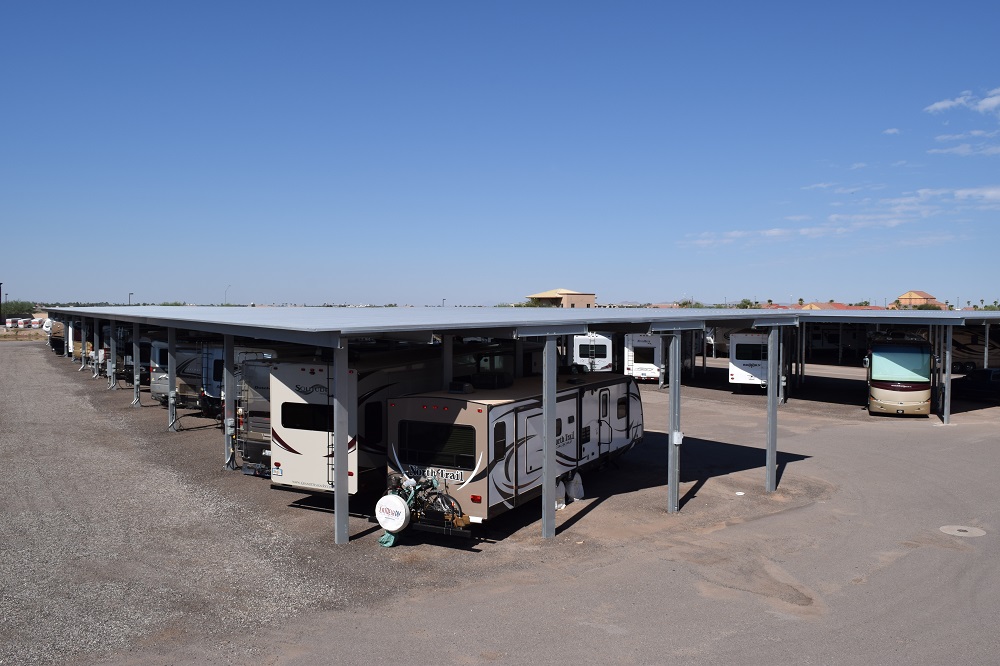For some people, their RV is their home. For others, it’s their home away from home. If you’re one of the latter, you know it’s important to store your RV the right way so your home on wheels stays in peak condition.
Secure location
Whether you’re storing your RV at your home or at a RV storage facility, you’ll want to make sure the location is secure and will deter potential burglars. If you’re storing your RV at your home, securing it behind a fence or aiming motion-sensing spotlights will improve security.
A better option for RV storage is a secure RV storage facility. Many of these locations allow you to store your RV behind a secure gate and offer video surveillance around the clock. At some facilities, the owner/operator lives on site, which provides an added level of security.
Storage options
If you decide to store your RV at a storage location, you have several options: open lot, covered and garage. When you store your RV in an open lot, it’s subjected to the elements much more than the other options. One good tip is to wash and wax your RV before storing it. The wax will help protect your RV from sun damage.
Storing your RV in a covered area or in an RV garage will help shield your RV from the elements, keeping it newer for longer. Fitting treatment for your home away from home.

Preventing mold and pests
Once you’ve picked a location to store your RV, there are some tricks you’ll want to use to help prevent your RV from smelling musty, growing mold or getting infested with bugs or critters.
- Leave any vents open to prevent mold or musty smells, but make sure they are covered with some form of screen to prevent bugs or rodents from climbing inside.
- Prop refrigerator and freezer doors open with open containers of baking soda inside to absorb odors.
- Hang dehumidifier bags to absorb moisture and prevent mold.
- Check seals around doors and windows to prevent leaks.
Peace of mind
Make sure you invest in quality locks for your RV to help prevent theft. However, sometimes things happen, so it’s important to have up-to-date insurance on your RV. When your RV is not being used for long periods of time, contact your insurance company to downgrade your coverage to a “storage only” option, if possible.
What are your RV storage tips? Share your lessons learned in the comments.



